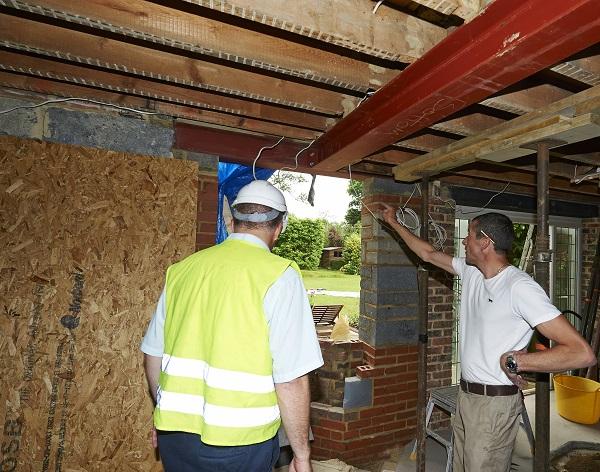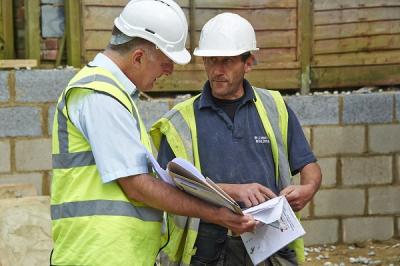How do building control service standards affect you?
BCPSAG and building control standards
The building control function in England and Wales works with property owners, developers, architects, contractors and trades people to help ensure building work meets the standards set in the Building Regulations. However, because we have a dual system of building control in England and Wales (with public and private sectors), successive government ministers have used the Building Control Performance Standards Advisory Group (BCPSAG) to set and measure the standards achieved by building control bodies in both sectors. This is now a sub-function of BRAC - Building Regulations Advisory Committee – which is a non-departmental, industry-based, advisory group sponsored by the English and Welsh governments.
How does it benefit you?
Market feedback shows that building control rates are very competitive without a wide range of pricing. However, quality, competencies, delivery and management vary much more widely. You can use the standards to understand how best practice should be delivered to you. More importantly, you can use the standards to help evaluate your existing or proposed relationship with a building control partner or use them to compare services.
There are nine key BCPSAG standards. What do these mean to you?
1. Policy, performance and management system
This means every building control body should create and publish a business policy covering: promised support and service levels to customers; the delivery of legal obligations in achieving compliance; compliance with the respective codes of conduct set out in the guidance; compliance with the current Building Control Performance Standards for England and Wales; and, have a Quality Management System for recording and measuring delivery. You can ask to see and review these to see how a service provider matches their business philosophy and approach to quality management.
2. Resources
Having promised support and service levels, building control bodies should demonstrate that they possess the resources and competencies to deliver these promises on all categories of work undertaken. Check if a local authority building control provider or Approved Inspector has the experience or professional knowledge to work on all categories of building work and that they have sufficient surveyors with the right competencies to support a new project.
3. Consultation
This requires that building control bodies set out how they will undertake all statutory consultations in a timely manner and how the observations of consultees (eg fire services) should be communicated in writing to you. You should ensure a robust process is in place that will complete these consultations.
4. Pre-application contact and provision of advice
This enables building control bodies to explain how they will work with you during the early design process to provide feedback on plans, compliance, innovation and affordable solutions. It includes the provision of a named ‘account manager’ to ensure continuity of thinking throughout a project. Pre-application design advice on compliance is a vital area of cooperative feedback and innovation. Investigate with whom your account manager will work and what access they will have to technical expertise at this stage.
5. Assessment of plans
Building control bodies have to demonstrate how, when assessment of plans is undertaken, they will communicate feedback on: compliance and non-compliance with the Building Regulations; the views of statutory consultees; any conditions pertaining to the approval or passing of plans; remedies available in the event of a dispute over compliance. As ‘plan checking’ is a vital area of feedback that can save you money and time during construction occurs, ask how much feedback you will receive from whom and what experience they have.
6. Site inspection
Building control providers must state how they will determine and agree a project service plan with customers, what will be covered, when, and inspected. Additionally, they should explain how notes will be made and recorded together with an explanation of how contraventions will be communicated and resolved. You should understand what level and frequency of site visits you will receive from the service plan quote (tender/proposal) provided by a building control body. For example, what happens if site issues are found or problems occur during construction requiring more inspections?
7. Communications and records
This covers the provision of notices, written records, documentation and certificates plus their storage in a retrievable way for at least 15 years. Local authorities and approved inspectors operate under different regimes. You should understand the policy of the building control bodies. Potentially this can affect future property sales or claims as solicitors would want access to key documents. Therefore you should investigate and agree with your building control providers.
8. Business and professional ethics
This is a commitment from building control bodies to respect: the codes of professional practice governing individual professionals; the legal requirements of competition law; and, the industry practice guidelines of the Construction Industry Council (CIC) and Building Control Alliance (BCA). You should understand that professional codes do apply and that conflicts of interest or matters of principle can arise – though rarely. BCA, LABC, ACAI*, and the professional bodies (RICS, CIOB, and CABE**) all support arbitration and mediation.
9. Complaints procedure
Finally, building control bodies must have an easy-to-find and user-friendly complaints process, including onward access to industry mediation. Any complaints you make should be recorded and resolved proactively.
Industrywide Initiative
Both representative bodies for building control (LABC for local authorities and ACAI for corporate private sector approved inspectors) fully support BCPSAG and its work and cooperate through the BCA to monitor and improve standards.
* Association of Consultant Approved Inspectors
** Royal Institution of Chartered Surveyors, the Chartered Institute of Building, and the Chartered Association of Building Engineers.
Useful links
- https://www.gov.uk/search?q=BCPSAG
- http://wales.gov.uk/topics/planning/buildingregs/bracw/building-control-performance-standards-advisory-group/?lang=en
- http://www.buildingcontrolalliance.org/
- http://approvedinspectors.org.uk/
Please Note: Every care was taken to ensure the information was correct at the time of publication. Any written guidance provided does not replace the user’s professional judgement. It is the responsibility of the dutyholder or person carrying out the work to ensure compliance with relevant building regulations or applicable technical standards.
Sign up to the building bulletin newsletter
Over 48,000 construction professionals have already signed up for the LABC Building Bulletin.
Join them and receive useful tips, practical technical information and industry news by email once every 6 weeks.
Subscribe to the Building Bulletin




Comments
Building Certificate issued but shouldn't have been
Submitted 5 years 3 months ago
Reply
Submitted 5 years 2 months ago
Thank you for your comment.
LABC is a member organisation and does not control the operations of individual local authorities. Any disagreement with a decision made by a local authority building control department must follow that local authority’s complaints procedure. Details will be available from the authority’s website or general enquiry desk.
Kind regards,
LABC
Add new comment